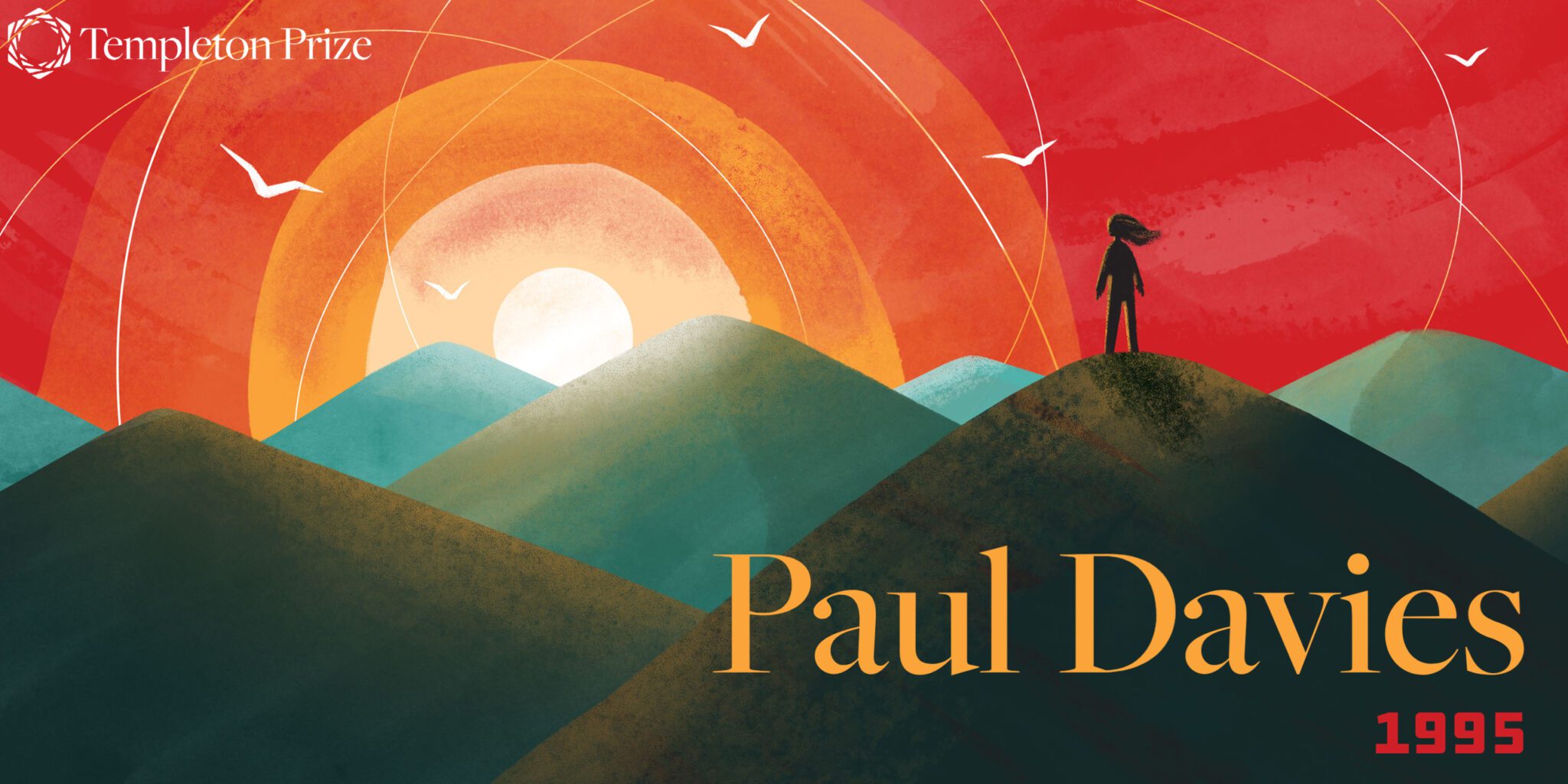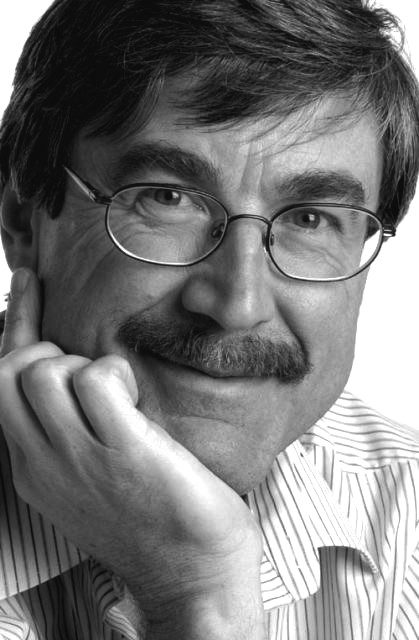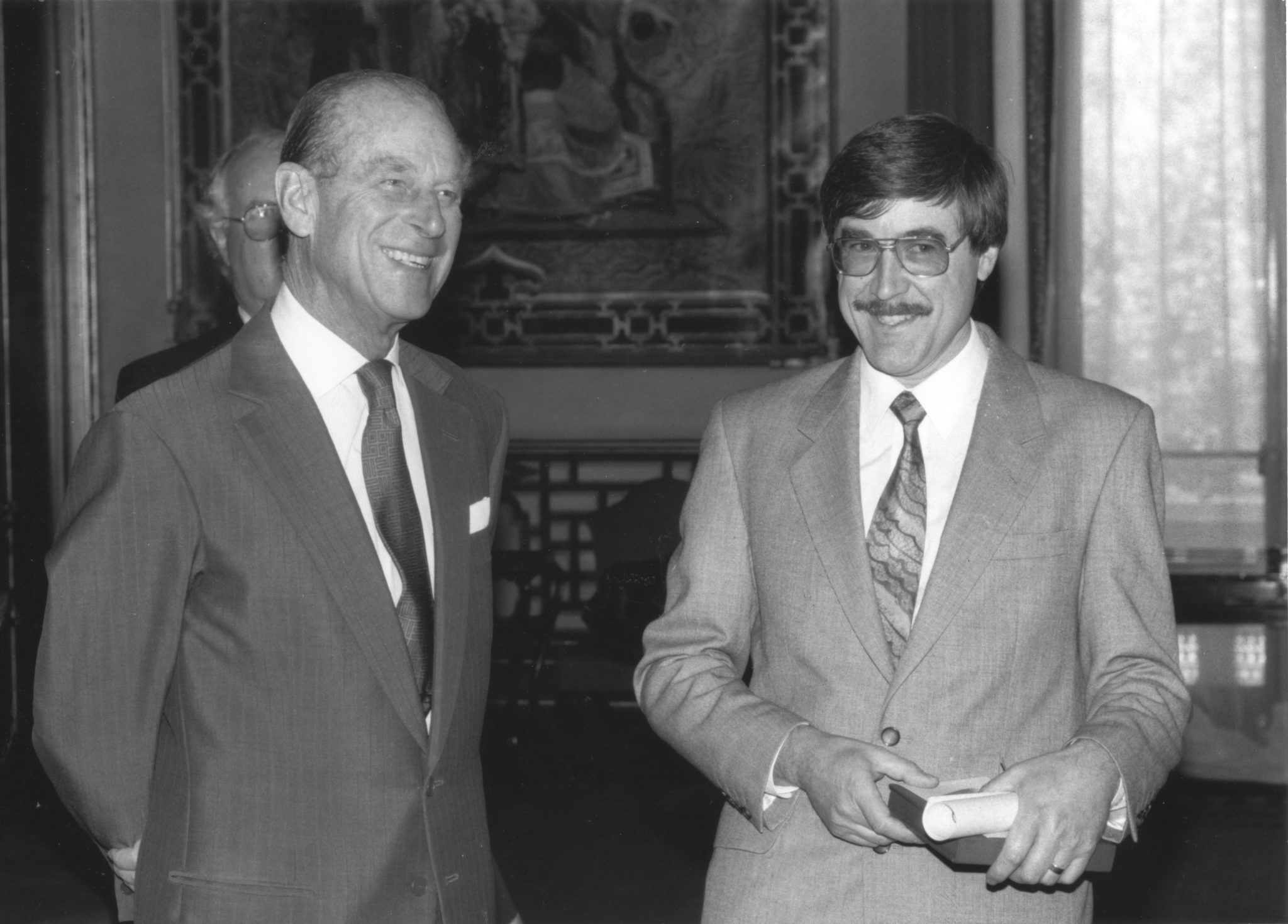In 1973, the first Templeton Prize was given to Mother Teresa. In 2023, we celebrate the 50th anniversary of this award. Over the next 52 weeks, we will highlight each of our laureates and reflect on their impact on the world. From humanitarians and saints to philosophers, theoretical physicists, and one king, the Templeton Prize has honored extraordinary people. Together, they have pushed the boundaries of our understanding of the deepest questions of the universe and humankind’s place and purpose within it, making this (we humbly think) the world’s most interesting prize.
Paul Davies is a renowned theoretical physicist who has worked for much of his career in astrophysics and cosmology, with an emphasis on the origin and very early stages of the universe, the quantum properties of black holes, and the nature of time.
Born on April 22, 1946 in London, England, Davies developed an early fascination with the mysteries of the natural world, setting the stage for his future career. He graduated from University College, London, in 1967 with a bachelor’s degree in physics, followed by a doctorate in theoretical physics. After graduating in 1970, he worked as a research fellow at the University of Cambridge. Two years later, he accepted a position at King’s College, London, as a lecturer in applied mathematics, and from 1980 to 1990, he was a professor of theoretical physics at the University of Newcastle-upon-Tyne.
In 1990, Davies moved to Australia as the chair of mathematical physics at the University of Adelaide, where he remained for seven years. He then held positions at the University of New South Wales, Macquarie University, and the University of Queensland. In 2006, Davies moved to the United States to teach at Arizona State University, where he is currently a Regents’ Professor, a professor of physics, and Director of the Beyond Center for Fundamental Concepts in Science.
Throughout his career, Davies has made significant contributions to several areas of physics, particularly in the fields of quantum physics, cosmology, and astrobiology. His research has delved into the fundamental principles governing the behavior of the universe, including the origin and nature of time, the role of quantum mechanics in the cosmos, and the possibility of extraterrestrial life.
-

Paul Davies
Beyond his research, Davies is widely regarded as a gifted science communicator. He has authored numerous books, ranging from technical scientific works to popular science books accessible to a wide audience. Some of his notable publications include The Mind of God, The Goldilocks Enigma, and The Eerie Silence. These works not only provide insights into recent developments in physics, but also explore the philosophical and existential implications of scientific discoveries. Davies has also made significant contributions to the public understanding of science through his appearances on television and radio programs, as well as his participation in public lectures and debates, by taking complex concepts and presenting them in an engaging, inspiring, and digestible manner.
In 1995, Davies was awarded the Templeton Prize for his wide-ranging inquiries into the workings of the universe that transcend the perceived barrier between science and religion. Through his research and contributions to theories concerning black holes, the nature of time, the beginning of the universe, and other monumental questions of modern physics, he has forged scientific concepts that extend well into the theological realm.
A public ceremony was held on May 3, 1995 at Westminster Abbey in London, where Dr. Gail Zimmerman, a Templeton family member, addressed the audience. Davies was awarded the prize by HRH Prince Philip, Duke of Edinburgh.
-

Paul Davies accepting his award from HRH Prince Philip
“A lot of people are hostile to science because it demystifies nature. They prefer the mystery. They would rather live in ignorance of the way the world works and our place within it. For me, the beauty of science is precisely the demystification, because it reveals just how truly wonderful the physical universe really is. It is impossible to be a scientist working at the frontier without being awed by the elegance, ingenuity and harmony of the lawlike order in nature. In my attempts to popularize science, I’m driven by the desire to share my own sense of excitement and awe with the wider community; I want to tell people the good news. The fact that we are able to do science, that we can comprehend the hidden laws of nature, I regard as a gift of immense significance. Science, properly conducted, is a wonderfully enriching and humanizing enterprise. I cannot believe that using this gift called science — using it wisely, of course — is wrong. It is good that we should know.”
– Paul Davies
“Professor Davies looks to the significant importance of the fact that humans have a capability to comprehend science and mathematics that is unique in the biological world. Because he also sees overwhelming evidence for a grand design in our universe, Professor Davies’ studies of astrophysics and his further delineation of space have added to our understanding of the universe and our further appreciation of our Divine Creator. His studies have also increased our frustration by causing us to ask more questions, even as we comprehend and attempt to understand the Black Hole, the immenseness of space, and the galaxies.”
– Gail Zimmerman
Still Curious?
Learn more about the 1995 Templeton Prize laureate here.


